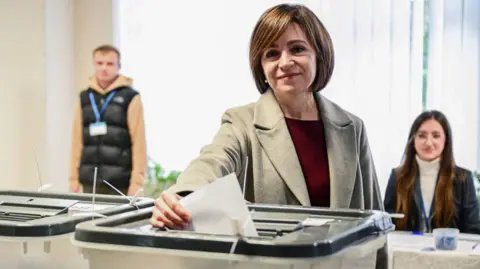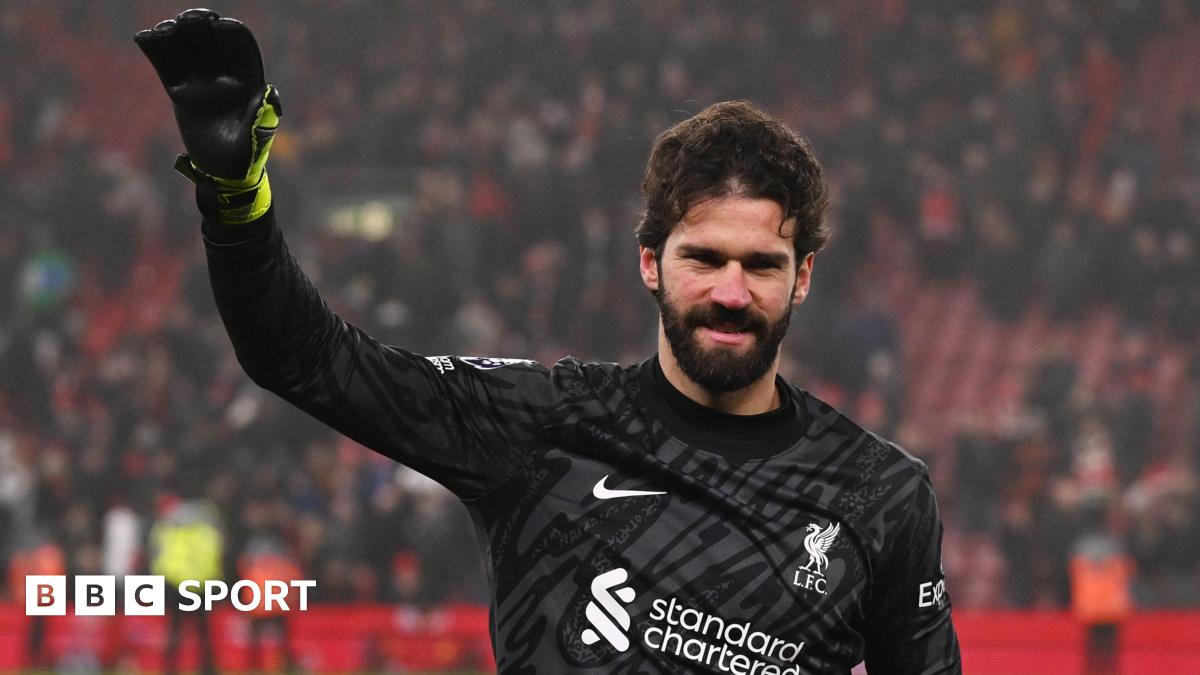
 DANIEL MIHAILESCU/AFP
DANIEL MIHAILESCU/AFP
Although Maia Sandu was well ahead after the first round, her rival has the support of several other candidates
Moldovans are going to the polls in the second round run-off of a presidential election seen as a choice between a European future or a return to Russian influence.
Pro-European President Maia Sandu faces Alexandr Stoianoglo, a man she fired as chief prosecutor, who has promised to balance foreign policy between the West and Russia and has the backing of the pro-Russian Party of Socialists.
Sandu and Moldova's authorities have warned that a fugitive oligarch now based in Russia is trying to buy the election for Moscow.
The Kremlin has denied interfering in the vote, much as it did during last weekend's disputed elections in Georgia, whose president described the vote as a "Russian special operation".
"We resolutely reject any accusations that we are somehow interfering in this. We are not doing this," said Kremlin spokesman Dmitry Peskov.
Sandu won the first round of the vote two weeks ago with 42.4%, well ahead of Alexandr Stoianoglo on 26%, but short of the 50% she needed to win outright. His vote is likely to increase because of the votes of candidates who failed to reach the run-off.
Stoianoglo has told Moldovans he would be an "apolitical president" for everyone, with a goal of security, peace and prosperity, and a "truly European model".
But commentators and politicians have warned that a Stoianoglu victory could radically change the political landscape in the Danube and Black Sea region, not because he is some kind of "Trojan horse", but rather because Russia has thrown its weight behind him.

 Reuters
Reuters
Alexandr Stoianoglo promises Moldovans to save their country from four more years of "abuse and ruin"
Former Moldovan Defence Minister Anatol Salaru said the election would decide whether Moldova would "continue the process of European integration or return to the Russia fold".
A former Soviet republic flanked by Ukraine and Romania and one of Europe's poorest countries, Moldova has a population of 2.5 million. It also has a large expat population of 1.2 million, whose votes could prove key to Maia Sandu in the run-off.
Moldova has opened talks on joining the European Union, and on the same day of the first round Moldovans voted by a whisker to back a change to the constitution embracing the commitment to join the EU.
The tiny margin in favour came as a surprise, although Maia Sandu said there was clear evidence of attempts to buy 300,000 votes.
The BBC spoke to one voter who said she and others had sold their votes for up to 1,000 roubles (£8).
BBC finds evidence of Russian vote buying in Moldova's EU vote
Whatever Russia's role behind the scenes, police said fugitive oligarch Ilan Shor had moved $39m (£30m) over two months from Moscow into Moldovan bank accounts in September and October, benefiting at least 138,000 voters.
Shor denies wrongdoing but did promise cash handouts to people prepared to back his call for a "firm No" to the EU. He faces a lengthy jail sentence in Moldova for money laundering and embezzlement.
Stoianoglo denies links to Ilan Shor but he does have the backing of the opposition pro-Russian Party of Socialists, led by ex-president Igor Dodon.
A populist ex-mayor who came third has refused to back either him or Maia Sandu, criticising both in equal measure.
"Do what you see fit. You must decide on your own," Renato Usatii told his supporters, blowing the race wide open.
 (1).png)
 1 month ago
3
1 month ago
3













